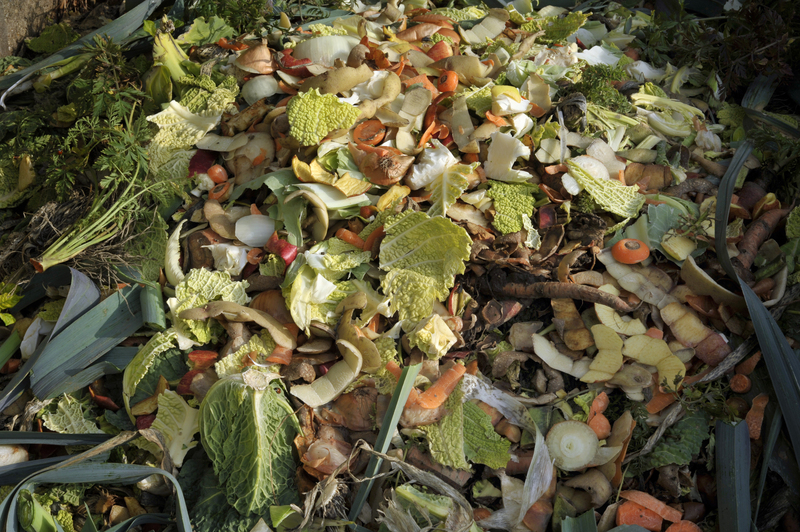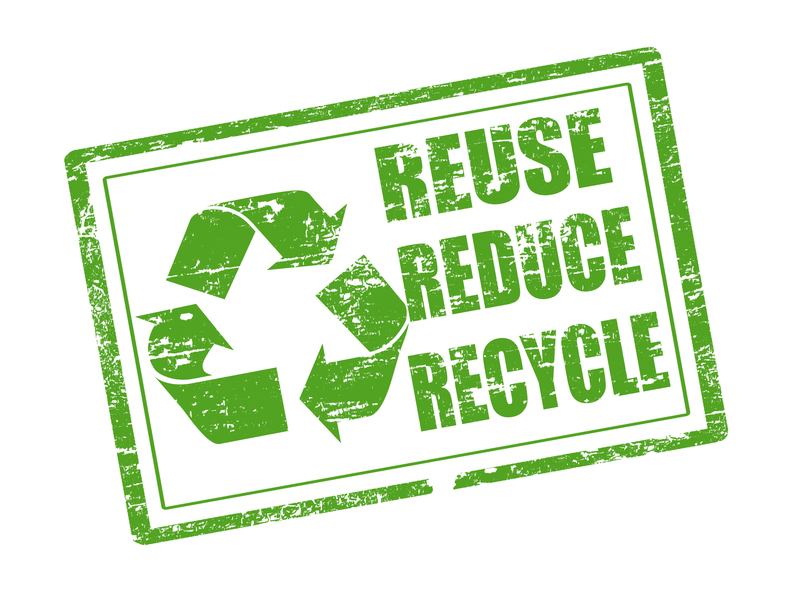How to Get Rid of Bulky Waste Items Without Spending a Fortune
Bulky waste disposal is a challenge many homeowners face, especially during renovations, spring cleaning, or major life changes. Oversized items like old furniture, mattresses, appliances, and garden debris can be cumbersome and expensive to remove. But getting rid of bulky waste without spending a fortune is possible with the right approach. In this comprehensive guide, discover cost-effective, sustainable, and practical ways to clear out your large junk items responsibly.
Why Bulky Waste Disposal Is a Common Problem
Many cities and neighborhoods offer limited options for disposing of bulky items. Leaving them on the curb isn't always possible, and hiring professional junk removal services can be costly. Additionally, improper disposal of large rubbish can harm the environment and sometimes result in fines. Whether you're moving, renovating, or simply decluttering, finding affordable solutions is essential.
Common Types of Bulky Waste
- Furniture: sofas, tables, chairs, wardrobes
- Appliances: refrigerators, washing machines, ovens
- Large garden waste: branches, tree stumps, sheds, fencing
- Mattresses and beds
- Carpets and rugs
- Old electronics: TVs, computers, monitors (sometimes called e-waste)

Smart Strategies for Affordable Bulky Item Removal
You don't have to break the bank to dispose of unwanted large items. Let's explore a range of cost-effective options:
1. Utilize Local Council Bulky Waste Collection Services
Most municipalities offer special bulky waste pickup days or collection services for a nominal fee or even for free. This can be the easiest and cheapest way to dump big trash items.
- Check your city or local council website for scheduled bulky waste collection days.
- Register your items for special collection--some areas require an online request or a phone call.
- Follow guidelines (e.g., maximum number or size of items, setting items at the curb by a certain time).
- If there's a fee, it's usually much lower than private junk hauler costs.
Tip: Bulk collection spots can fill up quickly. Plan ahead and reserve your slot early!
2. Bring Items to Public Recycling or Waste Centers
Most cities have transfer stations, household waste recycling centers, or landfills accepting large refuse for a minimal fee (sometimes free for residents). Self-hauling is one of the most economical ways to dispose of oversized waste if you have access to a truck or trailer.
- Locate your nearest recycling center via the local government website.
- Check what types of items they accept (some may exclude mattresses, electronics, or hazardous materials).
- Separate items by material: metal, wood, electronics, and so on.
- Ask about free disposal events. Many towns offer spring/fall amnesty days for residents.
3. Try Gifting, Donating, or Selling Usable Bulky Items
If your furniture removal or household appliance disposal involves items that are still usable, consider giving them a second life. This not only saves money, but is also environmentally-friendly.
- Contact local charities, shelters, or thrift stores for donation pickups.
- List for free or cheap on platforms like Facebook Marketplace, Craigslist, Nextdoor, or Freecycle.
- Organize a neighborhood "giveaway day" and let neighbors take what they want.
- *Some organizations may pick up large items for free, especially beds, sofas, and appliances.
Pro tip: Clearly state the item's condition in your listing to avoid complaints and wasted time.
4. Break Items Down for Easier, Cheaper Disposal
Many towns offer smaller trash service limits, but breaking down bulky items into parts can make them easier and less expensive to dispose of. For example, dismantle furniture, cut up carpets, and remove doors from appliances.
- Use a saw, hammer, or screwdriver to break large items into smaller pieces.
- Bag and bundle materials for regular trash pickup (within allowable weight/size limits).
- Safely remove metals and electronics for separate recycling if required.
Warning: Always wear gloves, eye protection, and follow safety precautions when dismantling bulky items.
5. Share Truck or Skip Bin Rental With Others
If you need to rent a van, truck, or skip (dumpster) for large waste removal, share the cost with neighbors, friends, or community members. Joint clean-up days can dramatically reduce your expenses.
- Coordinate a group garbage day for the whole street or block.
- Split the cost of a large skip/bin hire or moving van.
- Fill the container as efficiently as possible to maximize value.
6. Look for Free or Low-Cost Collection Events
Many cities host special collection days or events for residents to dump electronics, furniture, and yard waste for free or a minimal fee. Check your municipality's website or community bulletin boards for upcoming dates.
- Events may focus on certain types of items (e.g., electronics, mattresses, white goods).
- Sometimes proof of residency is required.
- Arrive early--these events are often popular and can have capacity limits.
What NOT to Do When Disposing of Bulky Waste Items
Getting rid of heavy or awkward junk shouldn't come at the expense of the environment--or your wallet. Avoid these costly and potentially illegal mistakes:
- Never dump bulky junk in empty lots, parks, or alleys (fly-tipping)!
- Do not leave items on the street without checking local regulations. Fines may apply.
- Avoid burning bulky rubbish, especially furniture or mattresses, as fumes can be toxic.
- Don't overload your regular trash bin, risking service refusal or damage to your can.
- Never attempt to dispose of hazardous materials (paints, refrigerants, electronics) with regular large-item waste.
Eco-Friendly Disposal of Bulky Waste
Responsible disposal is essential for reducing landfill waste and protecting the environment. Many bulky items can be recycled or repurposed:
- Metal, wood, and some plastics from large furniture and appliances can be taken to recycling centers.
- Mattresses and upholstered furniture often have recycling programs--check with your municipality.
- Appliances may need freon removal and specialized recycling--many cities offer white goods programs.
- Some creative individuals or businesses upcycle old furniture (turning pallets into tables, for example).
- Old electronics should always be recycled through certified e-waste depots.
Benefits of Responsible Bulky Waste Disposal
- Helps protect local wildlife and reduces environmental damage.
- Reduces landfill use and benefits recycling industries.
- Makes your home, neighborhood, and community safer and cleaner.
- Can offer tax benefits for donating reusable items to charities.
How Much Does Bulky Item Removal Cost?
The cost to get rid of large waste items varies widely based on location, amount, and method:
- City/council collection: Often free or $10-$50/item
- Transfer station drop-off: Usually $10-$40/trip
- Charity pickup: Often free if the item is in good/useable condition
- Skip/bin hire: $150-$500/week (shared cost reduces individual expense)
- Private junk removal services: $60-$150 for single items, $250+ for larger loads
*Note that prices fluctuate by region. Recycling centers may charge by weight, size, or item type. Always get a quote before committing to a private service.

Frequently Asked Questions About Bulky Waste Disposal
Can I leave my bulky waste items on the curb for regular trash pickup?
Most regular trash collection services do not accept large or heavy items on weekly pickup days. Check your city's policies for separate bulky item pickup requests.
What if I don't have a car or truck to transport my items?
Try borrowing a vehicle, renting one for a day, or sharing a trip with a neighbor. Some transfer stations offer resident pickup programs for a small fee.
Is donating large items really worth the trouble?
Absolutely! Donation services often offer free pickups, and you can support a good cause while reducing waste. Make sure items meet minimum quality standards for donation acceptance.
Are there items that aren't accepted by disposal facilities?
Yes. Paints, chemicals, batteries, medical waste, and some electronics require special handling. Check with your local council for instructions on hazardous waste disposal.
Conclusion: You Can Remove Bulky Waste Items Affordably and Responsibly
Disposing of large waste items without spending a fortune is completely achievable with a little planning and creativity. Take advantage of municipal collection programs, recycling centers, DIY disassembly, donations, and shared rentals to drastically reduce costs. Remember, responsible waste removal keeps your community clean and helps the environment. With these smart strategies, you can say goodbye to bulky waste without wasting money!
Action Plan: Your Next Steps
- Make an inventory of your bulky waste items.
- Check local council websites for free or low-cost collection options.
- See what can be donated, sold, or given away in your community.
- Organize shared removal or recycling center trips with neighbors.
- Follow local regulations to avoid fines and maximize savings.
Get started today and declutter your home--without breaking the bank!